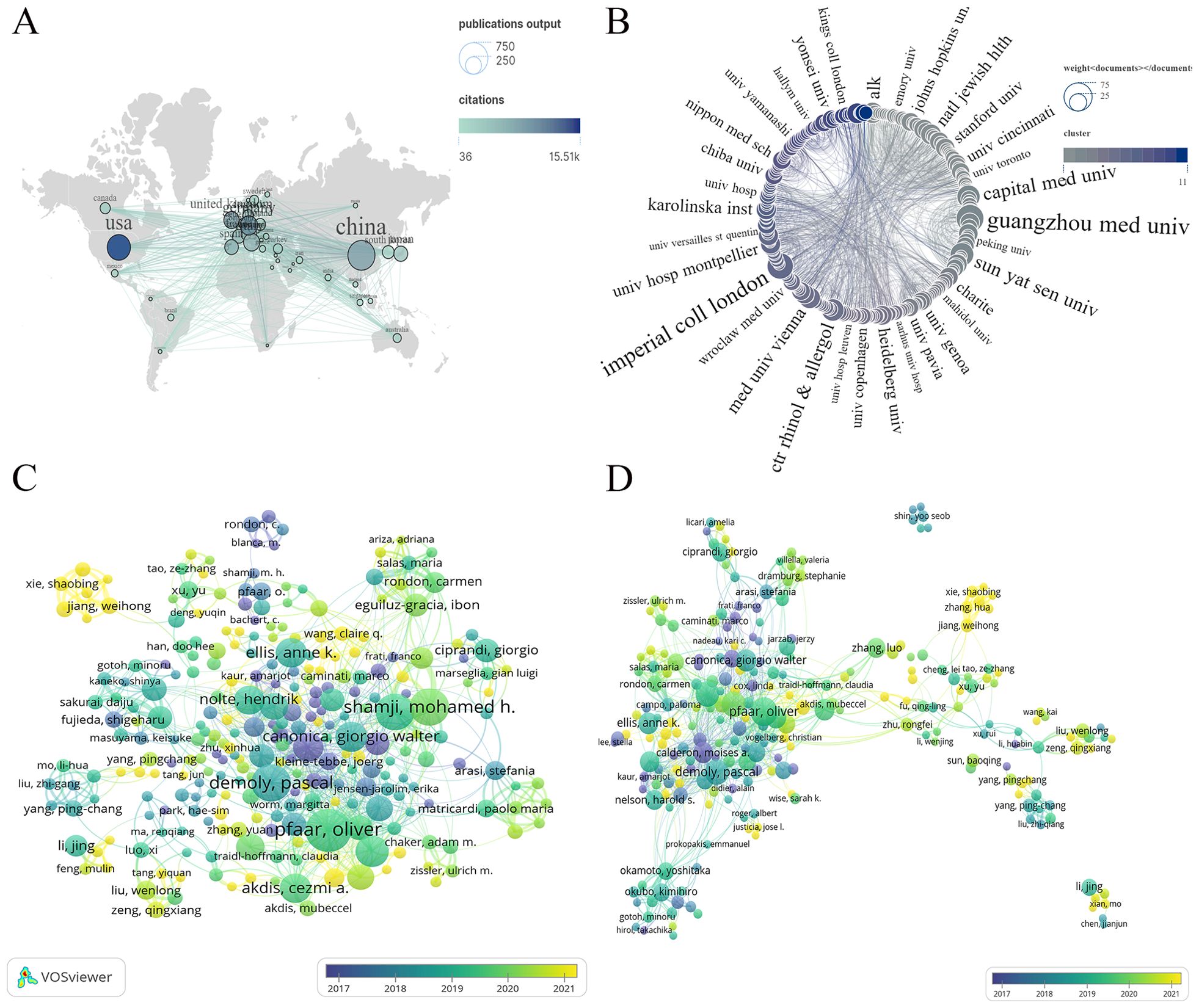Front. Immunol., 23 September 2024, Sec. Immunological Tolerance and Regulation Volume 15 - 2024 | https://doi.org/10.3389/fimmu.2024.1443954
Abstract:
Background: This study aims to provide a comprehensive bibliometric analysis of research trends, hotspots, and future directions in the immunoregulatory mechanisms of allergic rhinitis (AR) from 2014 to 2024.
Methods: Data were sourced from the Web of Science Core Collection (WoSCC), covering articles and reviews published between April 1, 2014, and March 31, 2024. The search terms included “Allergic Rhinitis,” “AR,” and related terms along with specific keywords related to immune cells and inflammatory mediators. Bibliometric tools such as CiteSpace, VOSviewer, and SCImago Graphica were used to analyze institutional cooperation networks, keyword co-occurrence, citation bursts, and research topic evolution. Microsoft Excel 2019 was employed to display annual publication trends.
 |
| Global research output and collaboration in immunoregulatory mechanisms of allergic rhinitis. |
Conclusion: The field of immunoregulatory mechanisms in allergic rhinitis has seen significant growth, with China and the United States leading the research. Future research should focus on developing personalized treatment plans and understanding the comprehensive impact of environmental factors. Continued interdisciplinary collaboration and international cooperation will be essential for advancing therapeutic strategies in AR.

No comments:
Post a Comment